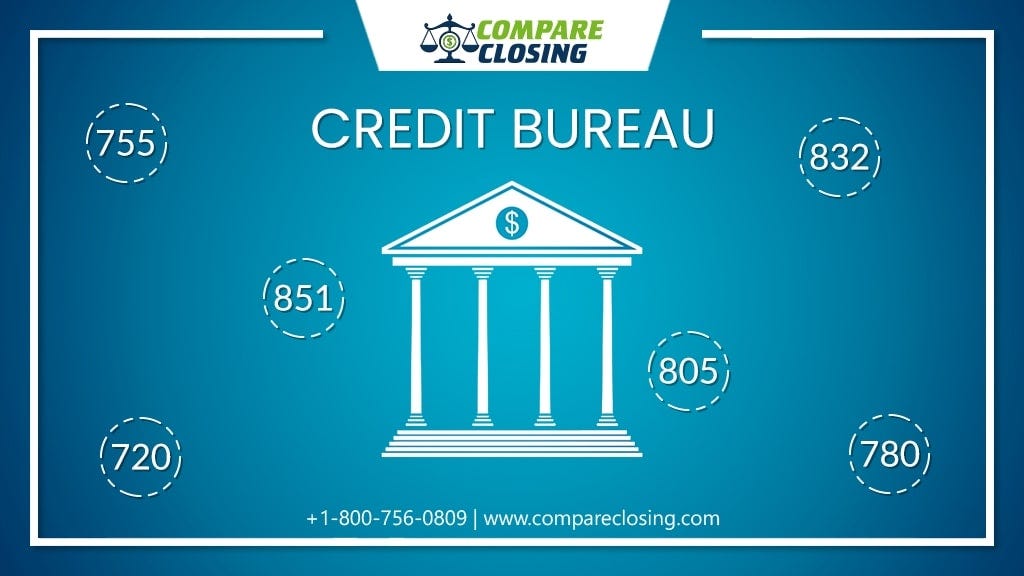
About Credit Bureau
Credit plays a very significant part in an individual’s life. In today’s world, we cannot imagine our life without accessing or requiring some sort of credit.
Every big or small financial institute makes the decision to lend money to its potential borrowers based on multiple factors. One of the significant factors is credit history.
But where do these lenders and financial institutes get the information about your credit? The answer is credit bureaus. In this post, we will learn details about what are credit bureaus and how they function.
What Is A Credit Bureau?
A credit bureau or a credit agency is a firm that supplies data about people and companies’ financial strengths and credit histories.
The credit bureau usually supplies this information to banks, credit card companies, retailers, and other lenders by charging them with some fees. Based on the information provided by the credit bureaus, the financial institutes will make decisions about lending money and the terms.
The data provided by the credit bureaus also helps lenders to determine how much interest to charge t the borrower. The credit bureaus are also known as credit reporting agencies.
The credit reporting agencies only provide the credit information for individuals and companies, they do not decide whether the applicants qualify for the credit, the lender does that.
What Do Credit Bureaus Do And How Does It Work?
The credit bureaus send credit reports which contain information about a person or a company’s bill repayment history.
The report also contains data about the status of their credit accounts. The report will show how often the loan applicant made payments on time, and what their current credit arrangements are.
It also shows how much credit they are using, and whether a debt collector is seeking repayment.
The credit reporting agencies keep comprehensive credit information on individual consumers for a variety of uses.
They use this information to provide credit facilities already availed of by a borrower as well as his payment track record.
The credit reporting agencies provide information on an individual’s borrowing and paying habits.
This helps lenders assess creditworthiness and the ability to pay back a loan and can also affect the interest rate and other terms of a loan.
There are three major credit bureaus that function in the country, TransUnion, Equifax, and Experian. Banks, credit card companies, and other financial institutions send financial data of registered individuals and companies to these credit agencies on a periodic basis.
These agencies use this information to create a credit report which includes personal information about an individual or the company like payment history, the number of credit accounts, defaults (If Any), credit transactions, outstanding loan amount, and other such financial information.
Based on this report and analysis of financial data, the individual or the company is assigned a credit score. This credit score helps the lenders to determine the borrowing party’s creditworthiness.
When you apply for a loan or a credit card, the lending banks or the credit card companies contact the credit bureaus to check your credit history to determine your repaying ability.
If your credit history and your credit score are satisfying to your lenders, only after that they will make a decision of lending money to you.
The credit reports are provided to banks, consumers, credit providers, insurance companies, credit card companies, and debt collection agencies on request to these credit bureaus.
Every credit bureau has a different way of calculating credit scores. Hence, the scores from all three bureaus will vary on an individual’s credit report.
For mortgage lending, the middle score is considered in order to provide you with the loan.
When an individual applies for a mortgage, the lender will pull the credit from all three credit bureaus and will consider the middle score of the three scores.
What Is The Importance Of Credit Bureaus?
In order to have risk-free credit management, it is important to have a clear picture of the individual before the lender lends the money.
The job of these credit bureaus is to ensure financial stability in the credit market. Based on the information received by the lenders and banks about an individual’s credit history, prepares the next lending partner to make the decision that would be completely risk-free.
This reduces the risk of default as the lenders would only provide financial aid to individuals who have a better to good credit history.
Most importantly, this information could be used as additional reputational collateral for the lending parties with minimum default risk.
Conclusion
Whether it is TransUnion, Equifax, Or Experian, it is your responsibility as a consumer to make sure that you repay all your liabilities on time.
According to the Fair and Accurate Transactions (FACT) Act every individual is entitled to get one free credit check from each of the credit reporting agencies once every year.
This will help you to keep track of your credit transactions and scores. Also, it would help you to know if there are any discrepancies or incorrect updates by any creditor on your credit report.
If there are any discrepancies, you can dispute them and get them resolved by providing adequate payment proof.
https://www.compareclosing.com/blog/what-is-a-credit-bureau/
Comments
Post a Comment